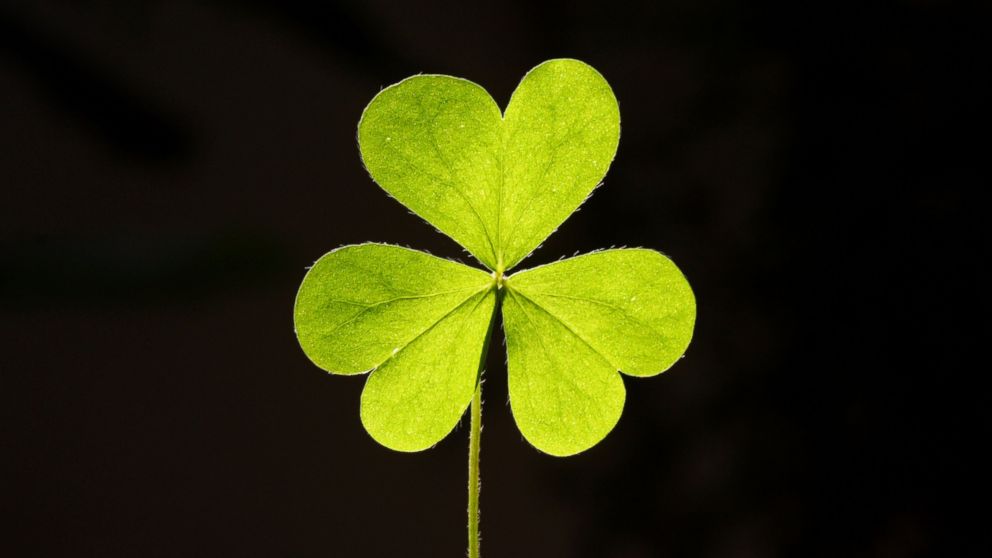Why You Shouldn't Use the Four-Leaf Clover Emoji Today
The shamrock, not the four-leaf clover, is Saint Patrick's symbol of choice.

— -- It’s officially March 17, which means that a wave of revelers in kelly-green clothing is about to descend on cities around the world.
St. Patrick’s Day is one of the most widely celebrated holidays of the year, when people from all walks of life slip on whatever shades of green they own to celebrate Irish history and culture.
One note of caution, however: Leave the four-leaf clovers at home.
Contrary to popular belief, a four-leaf clover is not interchangeable with a shamrock.
Shamrocks are a national symbol of Ireland and are closely associated with St. Patrick. During his ministry in 5th century Ireland, Patrick supposedly used the three-leafed shamrock to explain the concept of the Holy Trinity, a core tenet of Catholicism, to the pagan natives.
The Trinity holds that God exists as three distinct but coexistent entities: the Father, the Son, and the Holy Spirit. Patrick explained that just as the shamrock was one plant comprised of three leaves, so too was there one God consisting of three dimensions.
Though commonly-associated with the Emerald Isle, four-leaf clovers actually have nothing to do with Saint Patrick’s Day.
It’s true that these clovers have long had a reputation for luck, due in large part to their rarity (according to some estimates, a four-leaf clover occurs once for every 10,000 of the standard three-leaf variety). However, mistakenly associating them with St. Patrick has landed some people in hot water in the past. Just this month, Guinness apologized after ads in the Toronto subway used the four-leaf clover instead of the shamrock.
So before you leave the house today, make sure to count the number of leaves on your festive attire. And don’t forget -- it’s “Paddy,” not “Patty.”




